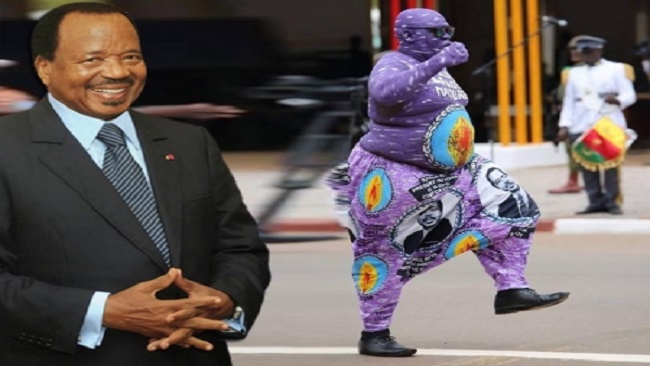Francophonisation of Media? Anglophone Press Collapsing Amidst Government Neglect
By Andre Momo
As Cameroon’s Anglophone crisis drags into its seventh year, the country’s English-speaking press is facing a slow but deliberate death. Once a vibrant space for independent thought and critical reporting, the Anglophone media landscape is now on life support—choked by insecurity, censorship, financial starvation, and systemic neglect by a regime that seems determined to silence dissenting voices.
Independent media houses across the Northwest and Southwest regions report crippling losses, not just in revenue, but in morale and capacity. Offices have shuttered. Staff have fled. And the few remaining outlets struggle to publish even intermittently, often under threat of state harassment or direct violence.
War, Censorship, and Economic Strangulation
The collapse of the Anglophone media is no accident. It is a byproduct of the war launched by President Paul Biya’s regime against the people of Southern Cameroons. Journalists have been arrested, tortured, or killed. Newsrooms have been raided. Press freedom—already tenuous in Cameroon—has become an illusion in the conflict zones.
Beyond physical danger, the state has weaponized economic tools to cripple English-speaking publications. Government advertising—an essential source of income for local outlets—has been rerouted almost exclusively to Francophone-owned media, even in Anglophone regions. Emergency relief funds and subsidies, when granted, are distributed with blatant linguistic and political bias.
In stark contrast, Francophone newspapers in Yaoundé and Douala continue to receive state backing, enabling them to expand, hire, and modernize—while their Anglophone counterparts fade into obscurity.
A Desperate Cry for Help
In a rare and telling move, several respected Anglophone newspapers—including The Post, one of Cameroon’s oldest English-language dailies—issued a joint appeal to the government for a bailout. The call was unprecedented, not just in its urgency, but in what it reveals: an industry gasping for air in a political system that neither values nor protects it.
Critics argue that the appeal, while understandable, underscores a deeper issue: the Anglophone media cannot survive within a system designed to erase it. What’s needed is not charity from Yaoundé, but structural change—one that reclaims media independence and restores the cultural dignity of English-speaking Cameroonians.
Francophonisation by Design?
Observers say what’s happening is not just neglect—it’s deliberate “Francophonisation.” In practice, this means a systematic marginalization of English-speaking voices, cultures, and platforms across all sectors, including media. It’s a slow erasure, carried out not just through war and bullets, but through budgets and bureaucracies.
This marginalization is not new. Since the 1972 abolition of federalism, Anglophones have seen a steady erosion of their institutions—from courts to schools, from regional governance to cultural representation. Today, the media joins that list of casualties.
BaretaNews Stands in Resistance
At BaretaNews, we reject the normalization of linguistic apartheid. We assert that freedom of expression is meaningless in a country where one half of the media landscape is starved into submission while the other thrives on state largesse.
We call on all English-speaking journalists, publishers, and media workers to resist this silencing. We urge the international press freedom community to speak out. And we demand that the regime in Yaoundé be held accountable—not just for its military atrocities, but for its cultural and institutional sabotage of an entire people.
Without a free and thriving press, there is no democracy. Without linguistic equity, there is no unity. And without justice for Anglophone media, there can be no peace in Cameroon.





